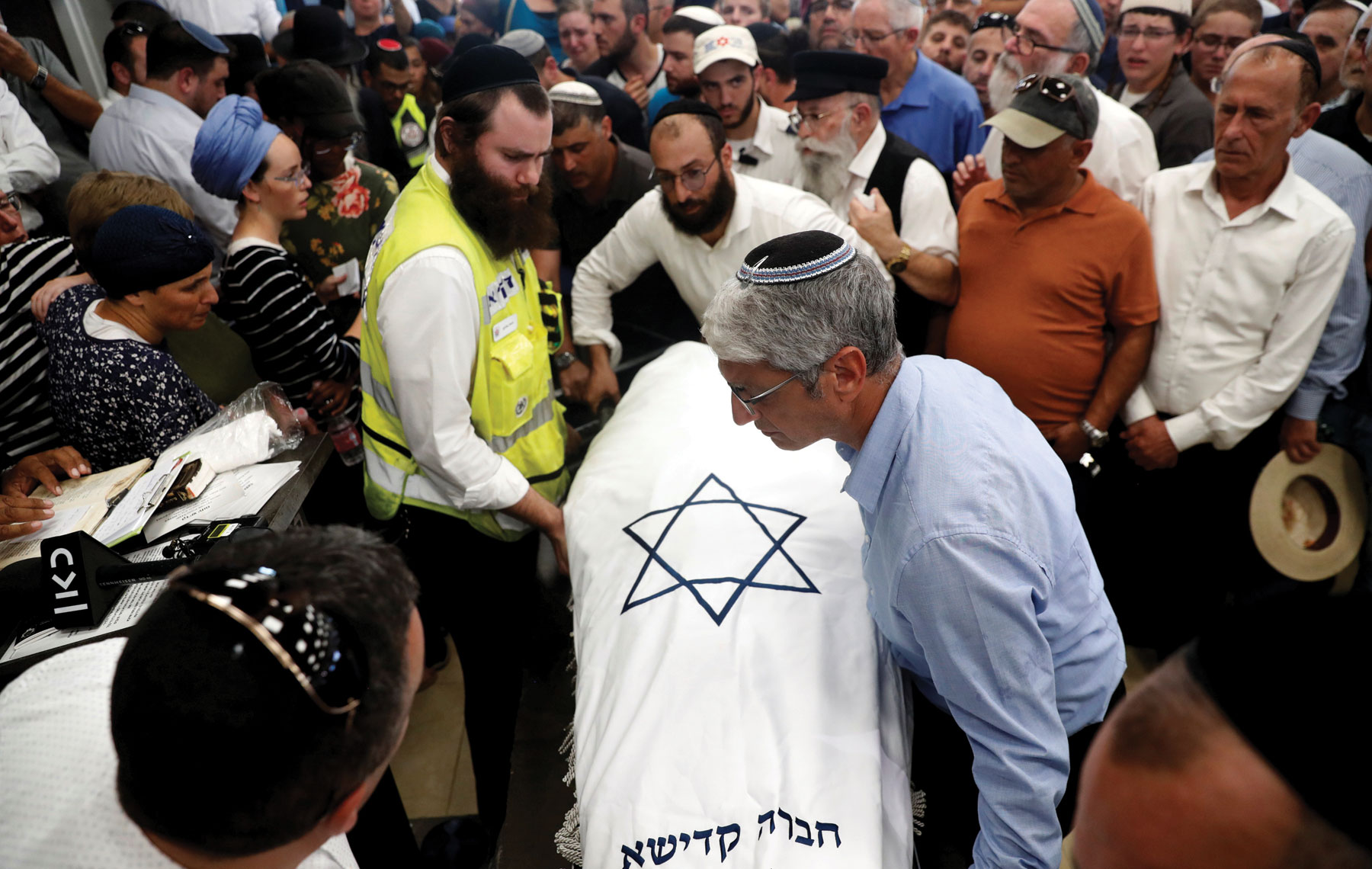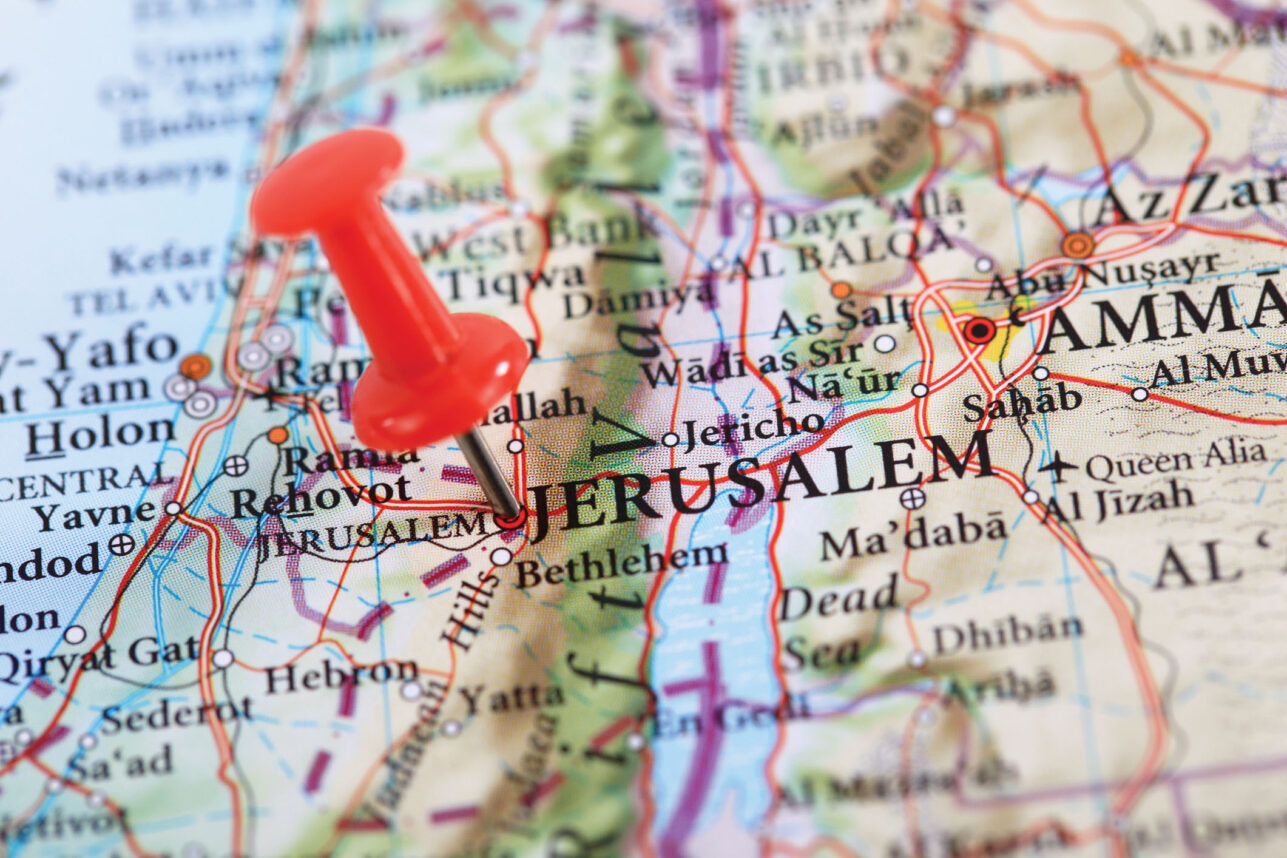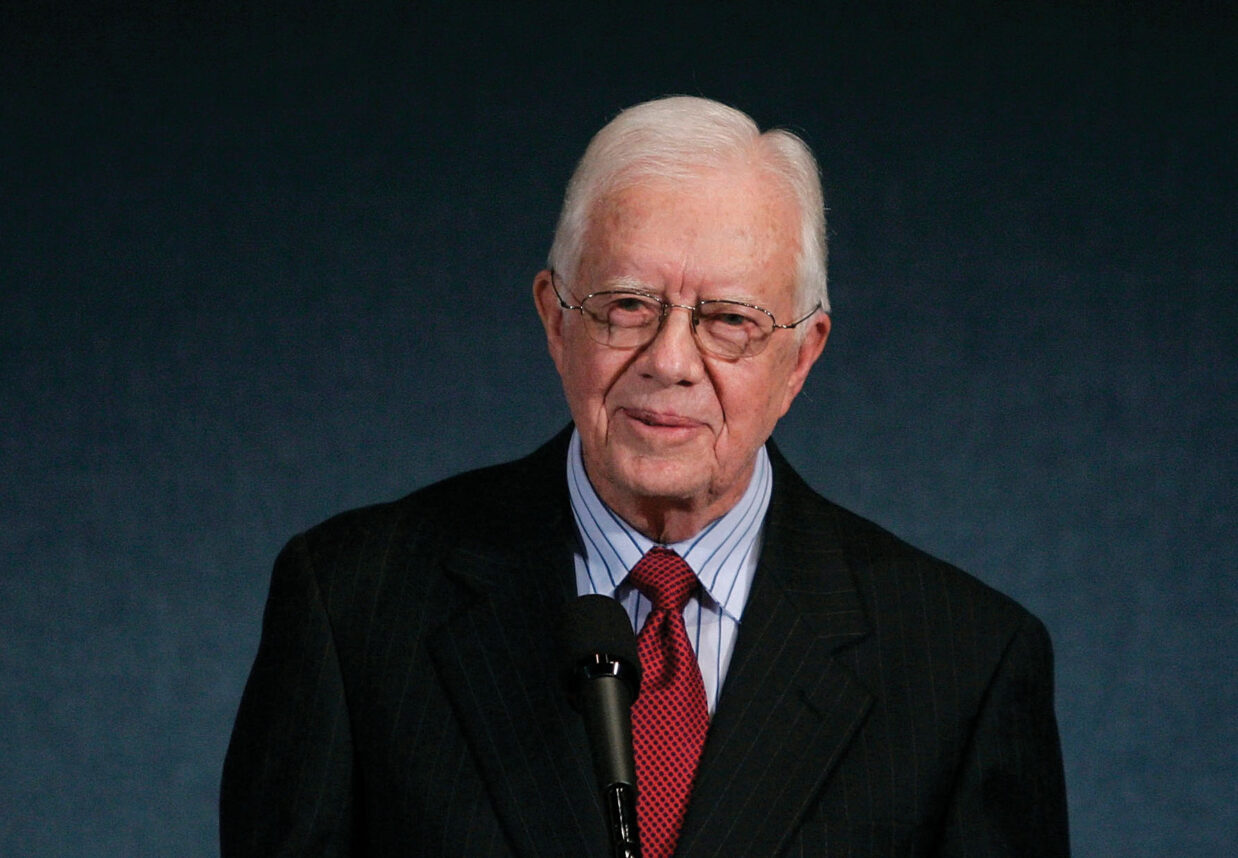
On the morning of Aug. 23, an Israeli teenager was killed by a terrorist bomb in Samaria. That night, Israel Defense Forces (IDF) killed an armed Palestinian trying to cross the Gaza border.
The next day, Israel’s Air Force bombed Syria to sabotage a planned Iranian attack of armed drones. That day, three rockets were fired from Gaza; Israeli drones reportedly exploded above Beirut; an explosive device was found and neutralized near a settlement.
On Aug. 26, the IDF concluded that Hezbollah planned an attack on its forces in the Galilee; Hezbollah’s leader made direct threats; opposition leader Benny Gantz was invited to Prime Minister Benjamin Netanyahu’s office for a security briefing; Iraqi leaders declared reported Israeli raids in Iraq an act of war. In the meantime Iran and the United States toyed with the idea of direct negotiations for a new Iran deal.
On Aug. 27, Netanyahu advised Hezbollah leader Hassan Nasrallah to “calm down”; Britain’s Times newspaper reported that Israel’s attack in Lebanon targeted machinery for precision-guided missiles; Just before midnight, an explosion killed two in Gaza.
And that was in less than a week.
Should we say this is war?
Consider this: There are attacks, counterattacks, maneuvers and threats. Israel is active on five fronts: the West Bank, where violence is contained and yet the situation is volatile; Gaza, where violence threatens to erupt daily; Syria, where Iranian forces keep trying to form a base against Israel that Israel won’t allow; Lebanon, where pro-Iranian forces feel compelled to act in response to Israeli actions; and Iraq, where Israel reportedly operates as part of the war against Iranian expansion.
On Aug. 26, 2014, Israel and Hamas ended a 50-day round of severe violence. Some call it the Gaza War; Israel called it Protective Edge.
After that conflict, Hamas learned a lesson: Having a war with Israel is costly, and Hamas gains little. Israel also learned a lesson: Having a war with Hamas is costly, and Israel gains little. Since then, the two parties flex their muscles carefully. But this is becoming more difficult for both. On Aug. 26, thousands of Israelis who attended a rock concert were almost hit by a rocket from Gaza. Had the rocket caused injuries, Gaza would now be under fire. One small miscalculation, and violence will no longer be on a small scale.
This situation shouldn’t be confused with a lull between conflicts or cease-fires. It is the difference between a low-intensity, constant war and the eruption of high-intensity war.
And what is true for Gaza is truer for Iran.
Israel and Iran are at war — a relatively low-intensity, constant war. Iran seeks to become the dominant force in the region and admits that such dominance is supposed to lead to, among other things, the destruction of Israel. Israel doesn’t want to be destroyed, so it acts to preempt Iranian attempts to gain dominance. These attempts include issues ranging from Iran’s nuclear program to its support of militant Palestinian groups. In recent years, the main front of this war is on Israel’s northern border, where Iran wants to have a base from which to operate against Israel.
The dictionary defines “escalation” as an increase in the intensity or seriousness of something. This week, we’ve witnessed such increase on all five fronts. An increase in the level of intensity was visible, and somewhat routine. This is not the first week during which more than one violent event raises the alarm of participants and observers of the great geopolitical game in the Middle East. What made the past week unique is the increase in the level of seriousness of the actions.
Consider this: For the first time, Israel was outed in such a clear way as an aggressor in Iraq. For the first time, Iran was going to launch missiles from Syria toward Israeli targets. For the first time in a long while, an Israeli was killed by a hidden explosive device — a means of a guerrilla war. For the first time since the 2006 Lebanon War, Israel is accused of launching an attack in Beirut.
This is not just intensification in numerical terms. This is intensification in qualitative terms — more and not quite the same.
Does all this compel a move from low-intensity war to a high-intensity eruption? Not necessarily. In this region, wars tend not to happen when they’re expected. The 2006 Lebanon War is good example. No one — least of all Hezbollah — expected Israel to launch a war after a small-scale attack on an Israeli border patrol. Another example is the 2014 Gaza War, which was the result of miscalculation by both sides.
What has happened in recent weeks are two actors, Israel and Iran, determined to up the ante amid growing global uncertainty.
For the first time, Israel was outed in such a clear way as an aggressor in Iraq.
Nothing exemplified such uncertainty more vividly than the G-7 summit, and the sudden, if premature talk about a possible meeting between President Donald Trump and Iranian President Hassan Rouhani. On Aug. 25, Iran’s foreign minister made a brief and unannounced visit to the summit in France. On Aug. 26, Trump said he had “good feelings” about a possible nuclear deal with Iran.
Israel views such developments with apprehension. Its strategic pliability is significantly affected by its relations with Washington, and by the role the U.S. plays in the Middle East. The more reliable U.S. backing, the more Israel is stress-free. But with a president whose actions can be abrupt, and intentions somewhat unclear, there is little room for flexibility. Israel must hope for the best and, truth be told, Trump’s policies regarding Iran have been close to what Israel hoped for. Israel must also prepare for the worst, which could include an intensified military effort.
Syria is an example of how Israel operates when no other world actor has an interest or desire to intervene in an escalating arena. “In an era of instability and given the need to act alone in the face of weighty challenges (such as Iran),” explains a recent policy paper by Ambassador Avi Gil, former director general of Israel’s foreign ministry, “Israel should cultivate its hard-power capabilities — military and economic — to an even greater degree.” Simply put: Less global certainty, less regional stability and less international reliability means more use of more power.
As Israel attempts to understand Trump’s intentions, it must consider the 2020 U.S. elections and the political interest that the president might have to strike a deal with Iran as a way to demonstrate to voters his peacemaking ability.
Other observers certainly will consider Israel’s political game as a factor in the recent round of escalation. Israel’s policy in Syria is consensual. It has the support of right, left and center. But Israel’s policy in Gaza is controversial (Netanyahu’s critics say he’s too tolerant of rocket fire). And Israel’s decision to publicly take credit for an attack in Syria — the preemptive strike to thwart a drone attack by the Islamic Revolutionary Guard Corps’ elite Quds Force — is also controversial.
“This public talk is based on political interests, not with deterrence,” said former Prime Minister Ehud Barak, a political rival of the coalition. Indeed, one must weigh the “talk.” For many years, Israel has remained largely mum about its attacks against Iranian proxies in neighboring Syria. But starting before the last election, and continuing now, there is a trend of Israeli political and military leaders to be candid about these activities.
This started in January after an attempted Iranian missile strike at Israeli civilian areas. A military spokesperson explained at the time that this was a special case that necessitated a public response. Iran’s attempted drone attack last week is similar in nature. So the same rationale might hold in the current case: When Iran attempts to carry out a direct attack on Israel, Israel speaks up and declares its actions. But opposition leaders supportive of the attacks aren’t sold on the rationale for publicity. Maybe because the rationale is also valuable for Netanyahu.
Shmuel Rosner is senior political editor. For more analysis of Israeli and international politics, visit Rosner’s Domain at jewishjournal.com/rosnersdomain.
Shmuel Rosner’s book, #IsraeliJudaism, Portrait of a Cultural Revolution, is now available in English. The Jewish Review of Books called it “important, accessible new study”. Haaretz called it “impressively broad survey”. Order it here: https://amzn.to/2lDntvh






















 More news and opinions than at a Shabbat dinner, right in your inbox.
More news and opinions than at a Shabbat dinner, right in your inbox.